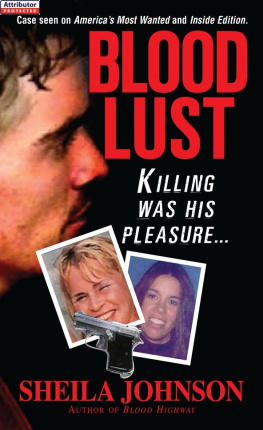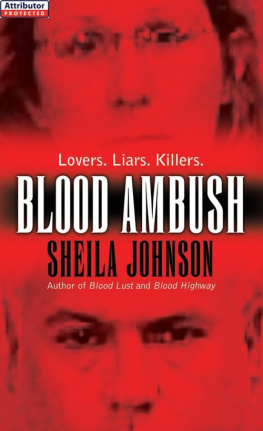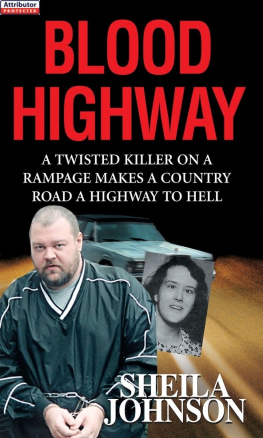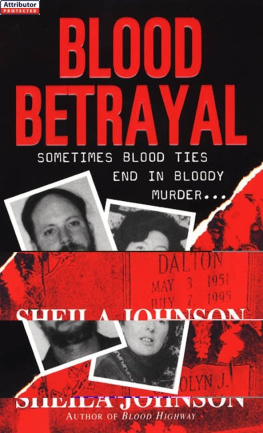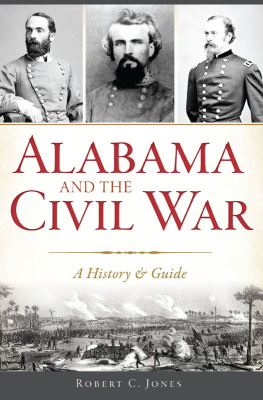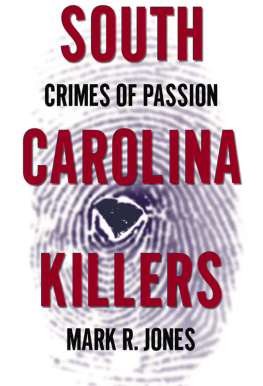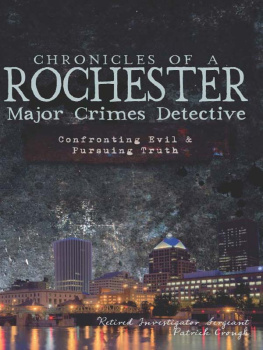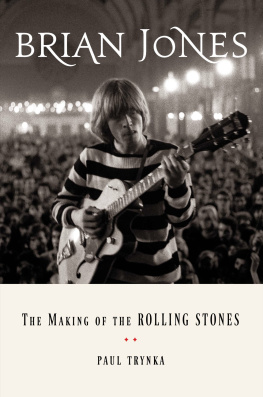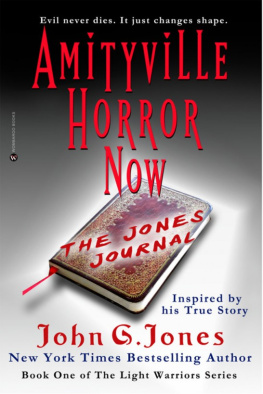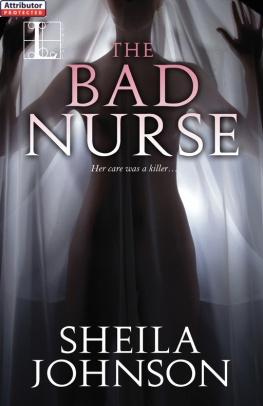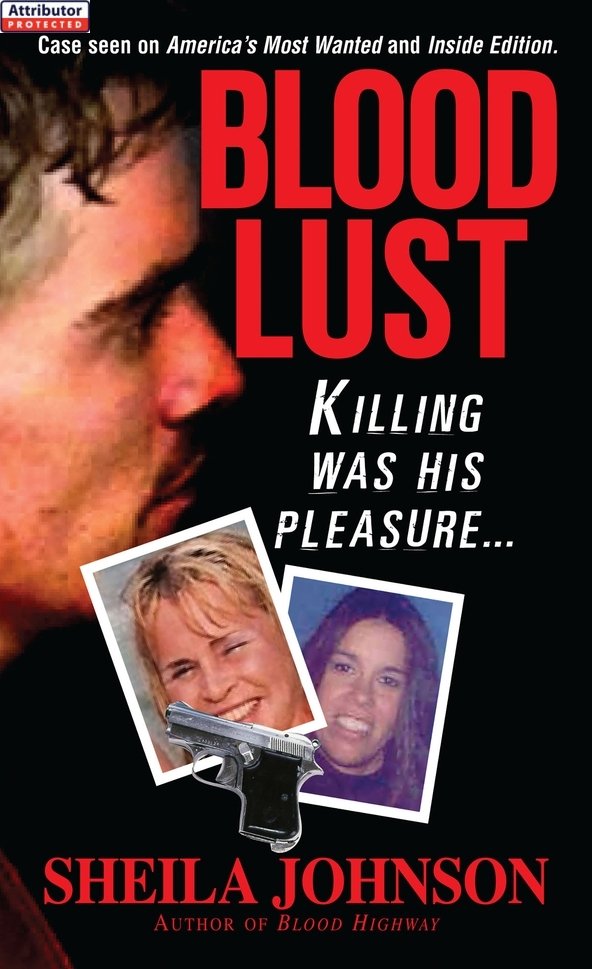Acknowledgments
There are a great many people without whom this book would have not been possible. Their help has been appreciated, and hopefully, none will be omitted. But if I should fail to mention anyone who lent me a hand with their information or expertise, please know I am very grateful.
The former sheriff of Mobile County, Alabama, Jack Tillman, was extremely open and forthcoming, and I hope to be able to reciprocate someday.
Alabama attorney general Troy King and his outstanding prosecutorsWill Dill, Don Valeska, and Corey Mazehave not only my thanks for all they have done for the people of their state, but my lasting admiration for their excellent work on this case.
There is an incredible video called Crystal Death, and it should be shown in every school, police station, sheriffs department, district attorneys office, and church in this nation. Look for it on the Internet; you wont be sorry. Thanks to Jesse Hambrick and everyone else who was involved with Crystal Death s production. Youve done a great service to us all, and your work has been an inspiration that has contributed greatly to this book.
Contributions to the photo section of the book have been provided by the sheriffs departments of Carroll County, Forsyth County, and Douglas County, Georgia; Kevin Pearcey of the Luverne Journal; Bo Wilson, of the Dawson News & Advertiser; Clarice Doyle, of the Claremore Daily Progress; the office of the Alabama attorney general; the New Orleans Police Department; George Herrera, of the Dawson Community News; and Jennifer Murphy.
Jennifer, in addition to contributing many photos of her beautiful mother, Lisa Marie Nichols, has provided so much information and assistance in more areas than I can count. She has been a tremendous help, and she has become a good friend. I hope this book will serve as a tribute to her mother, and to all the other victims families.
To the great number of other people who lent their knowledge, observations, and so much more, thank you so much. You have given me the means of creating a tool that I hope to use in encouraging families and law enforcement to never give up on their lost loved ones cases.
Afterword
When I started gathering information for this book, Jeremy Jones had already been arrested and was an inmate at the Mobile Metro Jail, awaiting his trial for the murder of Lisa Marie Nichols. Authorities all around the country were contacting the Mobile County investigators and hurriedly going through all their cold cases that fit the pattern of the crimes he claimed to have committed. A formal announcement about Joness confessions would not be made until after his conviction, but word had been spreading for months in news reports and on the Internet that he was being considered the next big serial killer and the redneck Ted Bundy. It was common knowledge that Jeremy Bryan Jones was believed to have been responsible for a large number of murders, and he was getting enormous amounts of press coverage.
Some highly technical search efforts were taking place in Oklahoma and Kansas for the bodies of Ashley Freeman and Lauria Bible, and cadaver dogs were being led along creek banks in Georgia, searching for any trace of the body of Patrice Endres. Arrest warrants were served on Jones for the murders of Amanda Greenwell and Katherine Collins, and as time passed, more and more information about his many alleged confessions and denials appeared.
Following his capital murder conviction, I began writing, while I continued to collect every scrap of information I could find about Jeremy Jones, his crimes, his victims, and his continual manipulation of the media. I was amazed at the way he had managed, from his jail cell, to pull the wool over the eyes of otherwise sensible and experienced reporters. Jones was able to get them to pass along his every word to the public, taking his announcements, claims, and presumptions and putting them into print or onto the six oclock newscast, just like he wanted.
After Jones was sent to Holman Correctional Facilitys death row, I decided that, in the interest of fairness, I would contact him and at least give him an opportunity to say, in his own words in this book, whatever he wanted to say to his friends, family, or the authorities. I saw the offer as a chance for him to offer a sincere apology for the terrible crimes he had committed. Instead, he thought he saw another easy mark coming, thinking that he was going to get yet another chance to continue on with his endless chain of lies and manipulation.
I dont know why I ever expected anything else.
I had hoped that Jeremy Jones was feeling even a little bit of remorse for the things he had done, and that he would use the opportunity I offered him as a means to communicate that remorse to all of the many people whose lives he had shattered. But no, all he wanted was another forum from which to proclaim his innocence, shift the blame for his actions, and make accusations about the officials who had put him behind bars.
He started, in his first letter, by claiming that I didnt want the truth from him; no matter what he told me, he said, Id never print the real truth. Id write a book totally based on the court transcripts, and that wasnt the truth at all, he claimed. Jones then informed me that if I really wanted him to give me his whole life story, and the truth, then get my trust.
I didnt plan to write the Jeremy Jones life story; the book is about his crimes, not his entire past history. And, as far as I was concerned, getting the trust of a killer on death row wasnt really an issue.
There is no way you got all the research to do a good book on me, he proclaimed in his letter. You havent even scratched the surface.
He would send me a list of all his old friends and their phone numbers, he said, his real close friends, not a bunch of bullshit police reports.
Then he asked, Do you want to see it thru [ sic ] my eyes, yes or no.
That far into the first letter from Jones, I saw that I could expect to end up in the same boat with Paul Burch and Mitch McRae, listening to an endless stream of deception, demands, and deceit. But I continued reading, just to see if anything even slightly sincere might appear somewhere among Joness boasts and claims of innocence.
He told me that hed kept a journal since the time of his arrest, and said that he had already put together four hundred pages of his life, having gotten, at that time, from his birth to when he had reached the age of twenty-five.
Im saving the best for last, he bragged, claiming he was also keeping a daily journal of prison life.
Jones told me hed had a few editors write to him and ask to write his life story, but he claimed hed already written 80 percent of it. He had put nothing in his account but the truth. Then, in the next sentence, he jumped to another subject.
Fuck an appeal, he said, I say I got something better.
One of the witnesses at the trial, he said, a woman who had testified against him, had later supposedly gone to his lawyers and told them that she had lied on the stand, saying that Scooter Coleman had told her the truth.
See, all you people out there, he said, watch your TVs and your computer screens and pretend thats the real world.
Wake up, he said, advising me to put my dos (dues?) in, put some miles on them feet, and travel to Oklahoma to meet his family and friends, and the people with whom he worked.
Then he told me, I played Paul Burch like a fiddle.

